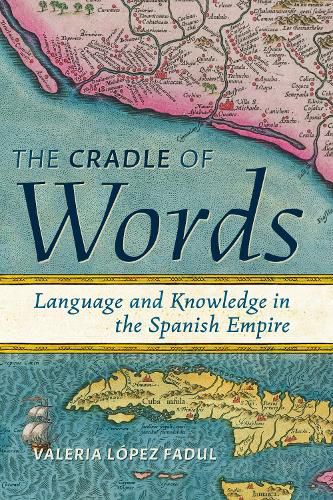Readings Newsletter
Become a Readings Member to make your shopping experience even easier.
Sign in or sign up for free!
You’re not far away from qualifying for FREE standard shipping within Australia
You’ve qualified for FREE standard shipping within Australia
The cart is loading…






How languages served as archives of local knowledge and a crucial resource for both the human and natural history of the Americas in the Spanish empire.
In the sixteenth century, the conquest of the Americas exposed Spanish writers to previously unknown peoples and their many languages. The linguistic multiplicity of the new transatlantic empire presented enormous challenges both in terms of governance and religious conversion. Yet it also became a crucial resource for learning about the new territories' history, both natural and human. In The Cradle of Words, Valeria Lopez Fadul reveals that Spanish scholars, missionaries, and administrators treated the empire's multiple tongues-both at home and abroad-as rich archives of local knowledge.
These linguistic resources were exploited alongside the Americas' vast mineral and natural wealth and Indigenous labor. In the process, Spanish scholars made language itself into an object of historical inquiry. Using a wide variety of sources, Lopez Fadul recreates the intellectual networks that crisscrossed Spain's overseas possessions and informed the imperial court's scholars. As linguistic information circulated among different kinds of scholars and local experts in Spain and in Spanish America, the history of language came to serve historical, political, and even legal arguments that were not originally linguistic in nature. By relying on varied methods like the collection of words, etymology, and the elaboration of linguistic genealogies, Spanish writers used the history of language to reconstruct the past, gain knowledge of nature, and explain the profound social transformations of their newly broadened world.
$9.00 standard shipping within Australia
FREE standard shipping within Australia for orders over $100.00
Express & International shipping calculated at checkout
How languages served as archives of local knowledge and a crucial resource for both the human and natural history of the Americas in the Spanish empire.
In the sixteenth century, the conquest of the Americas exposed Spanish writers to previously unknown peoples and their many languages. The linguistic multiplicity of the new transatlantic empire presented enormous challenges both in terms of governance and religious conversion. Yet it also became a crucial resource for learning about the new territories' history, both natural and human. In The Cradle of Words, Valeria Lopez Fadul reveals that Spanish scholars, missionaries, and administrators treated the empire's multiple tongues-both at home and abroad-as rich archives of local knowledge.
These linguistic resources were exploited alongside the Americas' vast mineral and natural wealth and Indigenous labor. In the process, Spanish scholars made language itself into an object of historical inquiry. Using a wide variety of sources, Lopez Fadul recreates the intellectual networks that crisscrossed Spain's overseas possessions and informed the imperial court's scholars. As linguistic information circulated among different kinds of scholars and local experts in Spain and in Spanish America, the history of language came to serve historical, political, and even legal arguments that were not originally linguistic in nature. By relying on varied methods like the collection of words, etymology, and the elaboration of linguistic genealogies, Spanish writers used the history of language to reconstruct the past, gain knowledge of nature, and explain the profound social transformations of their newly broadened world.